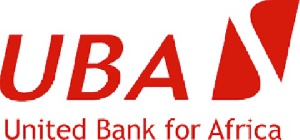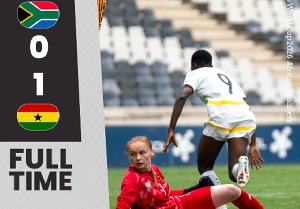Fitch Ratings has affirmed the Long-Term Issuer Default Ratings (IDR) of United Bank for Africa Cameroon (UBA CAM), United Bank for Africa Senegal (UBA SEN) and United Bank for Africa Ghana (UBA Ghana) at 'B-'.
The Outlooks are Stable. These ratings are strong when put in the perspective of the Sovereign ratings in these countries, as the ratings of these lenders are capped by the ratings of the Sovereigns of the countries within which they operate. Precisely, Fitch rates Cameroon 'B'/Stable and Ghana 'B'/Negative.
The three banks are subsidiaries of Nigeria's United Bank for Africa Plc (UBA; B/Stable/b). UBA controls 100% of UBA CAM, 86% of UBA SEN and 91% of UBA Ghana.
The Long-Term IDRs of UBA CAM, UBA SEN and UBA Ghana are driven by their standalone financial strength, as defined by their 'b-' Viability Ratings (VR), and are also underpinned by Fitch's view of potential support from UBA Plc.
Performance indicators are strong at the banks, particularly in UBA Ghana, and their balance sheets are liquid. This is credit-positive because it provides some protection against the considerable liquidity risks arising from notable asset and liability maturity gaps. The banks' ability to build up capital internally is positive because this will support the parent's ambitious growth plans for its subsidiaries.
Reported impaired loans represent below 4% of gross loans across the banks, and impaired loan ratios are far better than the averages reported by their domestic peers (14% in Cameroon, 16% in Senegal and 19% Ghana). This is explained by the relatively unseasoned loan portfolios (UBA Ghana, UBA CAM and UBA SEN were respectively established in 2004, 2007 and 2009) and by the relatively higher-quality customers they target.
The three subsidiaries lend to leading domestic corporate and public sector entities and these loans dominate the portfolios, representing around 70% - 90% of total loans.
Reported regulatory capital ratios comfortably meet local Basel 1 requirements (UBA Cameroon: 11.4% at end-June 2016; UBA Senegal: 25% at end-September 2016; UBA Ghana 25.7% at end-September 2016).
UBA's 'b' VR is used as the anchor from which to derive the '5' Support Ratings (SR) assigned to the three banks. The three banks are an integral part of the group's central and western African franchise.
However, the subsidiaries are all small relative to the parent. UBA Ghana is the largest of the three subsidiaries, representing 8% of consolidated group assets. This suggests that the potential cost to the group of providing support to the subsidiaries, if required, would not be too onerous.
Business News of Thursday, 23 February 2017
Source: www.ghanaweb.com
Fitch affirms ratings of 3 UBA subsidiaries at B-Outlook Stable
Entertainment












